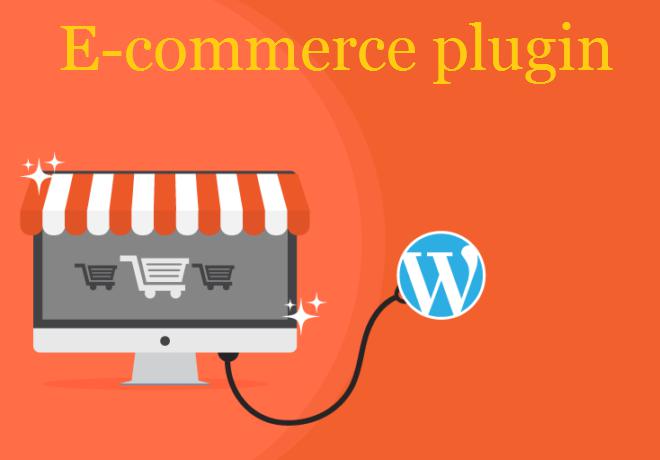Building a successful e-Commerce business on WordPress is like running a marathon race. While this can sound intimidating and scary to someone who doesn’t have a lot of experience building a website, the truth is that it’s never been more straightforward for a novice or amateur to launch a working and functional e-commerce site. The good news is that WordPress offers many different ways to build an online store for different types of products.
Your business has all the prospects to become a success story, provided you know what to do, when to do it as well as how to do it. So, where do you start? What comes first? What
web analytics tools and resources are the best? In this post, we’ll walk you through the process of building a successful e-commerce website on WordPress.
1. Choose a good domain name and hosting provider
The first step in building a successful WordPress e-commerce website starts with your domain name. A domain name is an address you enter into your browser to access a site. People will identify your online store using this domain name. You need to choose your website domain name carefully because it's not something you can change very often.
You also need a hosting provider to host your website on the Internet. You must choose your hosting provider based on factors like the functional area of your site, kind of website you are creating, the number of visitors, scope of your website, and security requirements, etc. You have the option of a shared or dedicated host.
2. Select an e-commerce plugin
What separates your
WordPress eCommerce site from a regular WordPress website is how you sell products directly to customers from your site. Therefore, you’ll need to install an eCommerce plugin to add this functionality to your website. Wordpress has a few different plugin choices to create an online store. WooCommerce, Easy Digital Downloads, and WP eCommerce are the three leading eCommerce website plugins. WooCommerce can help you build and organize product pages, and provides a shopping cart and checkout process. It’s free to use, but you can extend its functionality further with various paid extensions.
Easy Digital Downloads (EDD) is specifically designed to help you sell digital products. This type of plugins allows you to place restrictions on downloads, create discount codes, provides full tracking sales, and other statistics. It's free and has paid extensions you can purchase. WP eCommerce is another popular choice for creating an online store with WordPress. It has all the necessary features like product pages, shopping cart, and checkout functionality, and inventory management. It's free to use and have paid extensions like other plugins.
3. Set up the product pages
Now that you have your plugin set up successfully, your website is now ready to display your products for sales. Every
WordPress plugins do things differently, so we’ll cover the steps for doing this using WooCommerce plugins. Log in to your dashboard and add products to your WooCommerce based eCommerce website. Make sure that the product you add must have the following features:
- Product Title
- Product description
- Product category
- Price
Classifying the products on your eCommerce site is essential because it makes your website content organize and makes it easy for the visitors to find the products of their choice without wasting much time on the products that they’re not looking for.
4. Find a theme that matches your e-commerce vision
WordPress offers the best selection of e-commerce themes, but not all support your e-commerce platform. Themes control how your online store look to the users when they visit it, and they also control how you display your products. There are many paid and free WordPress themes available. While you can find a bunch of free themes on WordPress, it’s worth checking out some of the premium ones. When choosing a theme, you need to make sure that:
- The theme doesn't bundle tons of functionalities that make your website heavy
- The theme is responsive and can adapt to different screen resolutions and devices.
- The theme resonates with the products you sell and your unique audience.
5. Make SEO your best friend
Search engine optimization is very vital for any business that wants to reach its target audience quickly without spending a fortune. Most of the present day business ventures rely on SEO. It can earn you anywhere from 78% to 80% higher click-through-rates if done correctly. SEO can help you win free organic traffic that will convert into sales as well as make your website available to target customer groups.
There is no easy way to earn the highest spot in the search engine ranking — small, medium and large-scale businesses need to spend time setting permalinks, tweaking headings, submitting guest posts and more to spike their SEO ranking. However, you can get a
quote from Brisbane SEO Firm Joel if you want to put your site development in the fast lane.
6. Accepting payments for your products
Your website must be able to accept payments from customers. To manage the payment options of your WordPress eCommerce store, navigate to the checkout settings page. WooCommerce, for instance, allows you to integrate the Payment gateways of your choice and accept online payments through your eCommerce website.
Payment gateways come in both paid and free forms. You need to have an SSL certificate to make use of payment gateways. This will ensure that all transactions and financial information between you and your customer are safe from hackers.
In Summary
Building an online e-commerce store takes hard work, patience, and a willingness to learn new skills. To build a productive and profitable WordPress e-commerce site, you need to avoid looking too far ahead. The tips above are a complete breakdown of the secret behind a successful eCommerce business. Follow these tips diligently and become the proud owner of a WordPress e-Commerce store that attracts customers. We hope you enjoyed reading this post, and feel confident about launching your own e-commerce store.


